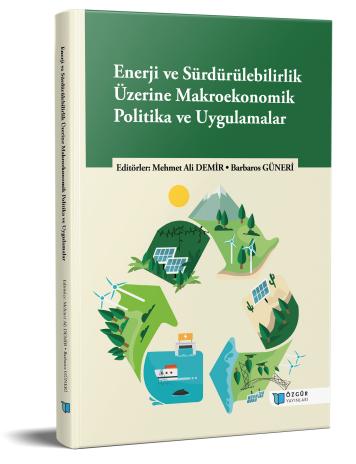
Turkey and The International Climate Change Regime: A Strategic SWOT Analysis
Chapter from the book:
Demir,
M.
A.
&
Güneri,
B.
(eds.)
2025.
Macroeconomic Policies and Practices on Energy and Sustainability.
Synopsis
This study aims to examine Turkey’s participation in the international climate change regime from the perspective of sustainable development. The analysis evaluates Turkey’s commitments under key agreements such as the Kyoto Protocol and the Paris Agreement, as well as the constraints and opportunities it faces, using a SWOT framework. The study adopts a qualitative document analysis method, drawing on international reports, academic literature, official statistics, and national climate policy documents.Findings indicate that Turkey’s young population, its significant renewable energy potential, and its strategic geographic position provide notable advantages for the implementation of climate policies. At the same time, a fossil fuel–based energy structure, high emission intensity, and limited financial resources may give rise to vulnerabilities in policy implementation. Opportunities include the European Union’s Green Deal, access to green finance mechanisms, and technology transfer, while threats stem from global emission reduction pressures, the Carbon Border Adjustment Mechanism (CBAM), and the physical impacts of climate change. The overall assessment suggests that Turkey’s climate policies should be considered not only in environmental terms but also in their economic and geopolitical dimensions. In this context, designing a climate policy framework that is consistent with sustainable development goals, comprehensive in scope, and attentive to social well-being is of critical importance.

